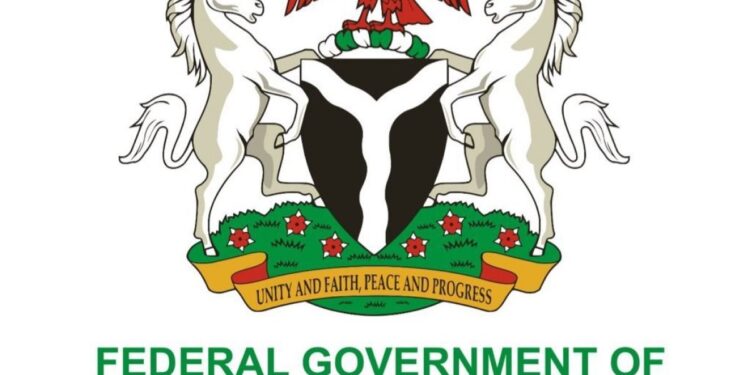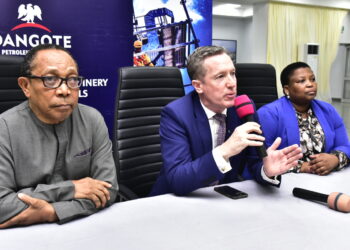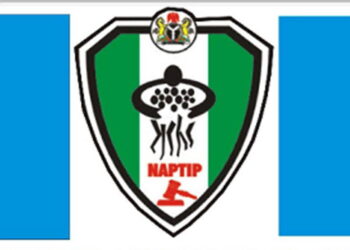Abuja – Worried about Nigeria’s continued loss of $64million revenue daily to oil thieves, the Federal Government on Tuesday inaugurated an investigative panel to unravel those behind the criminal act and bring them to book.
The National Security Adviser, Major General Babagana Monguno (rtd) disclosed this in Abuja as he inaugurated a nine-member Special Investigative Panel (SIP) on oil theft with a mandate to unravel individuals, organisations and groups involved in the Niger Delta region.
He said, “Some sources put the figure of daily crude oil losses at 800,000 bpd. This translates to a loss of income of about $64 million daily at the rate of $80 per barrel.
“Consequently, it is projected that if this trend continues unchecked and these figures keep fluctuating, it will result in a revenue shortfall of approximately $23bn in 2023.
”This translates to a loss of about N10 trillion when calculated at N445 to $1 exchange rate.
”This menace assumed a more worrisome dimension with recent discovery of illegal pipeline connection through which Trans Escravos pipeline was siphoned for several years.”
Monguno also said that recent interventions by the security agencies had revealed massive illicit platforms of stealing, ranging from marine evacuations via vessels, and load-outs from illegal operations platforms.
The panel, according to the NSA, is expected to commence its assignment with immediate effect and submit its report on or before February 21, 2023.
He said Nigeria had consistently failed to meet its daily production quota of about two million barrels per day as provided by the Organisation of Petroleum Exporting Countries (OPEC) due to oil theft orchestrated by unscrupulous elements.
He added that Nigeria’s current crude production struggled to meet even one million barrels per day.
He said the oil and revenue losses were a major threat to the economy, constraining the present administration to revert to less popular monetary and fiscal policies to address revenue side constraints with dire implications.
He noted that the security operations in the region brought to the fore, “a pathetic pattern of organised criminal enterprise of economic sabotage orchestrated by unpatriotic private individuals/groups, local and international companies, leaders and communities that had shortchanged the economy and portrayed the Administration in bad light.
He said the government had been briefed on the dwindling economic fortunes including, inability to replenish foreign reserves and reduction in revenue thereby, affecting accruals into the Federation Account.
The NSA said, “With the scale of the theft and losses and the alleged complicity of regulatory agencies/officials and security personnel as well as the involvement of international collaborators, the enterprise is deeply entrenched and would be extremely difficult to exterminate without very stern and decisive action by the government.”
The panel has Major General Barry T Ndiomu (retd.) as chairman and Mr David Attah as secretary.
Other members are Mr. Erobiri Uchena, Mrs. Donu-Kogbora, Colonel B.A. Oguntayo (retd.), DIG Zaki Ahmed (retd), Dr Orji Ogbonnaya Orji, Mr. MO Ijere, Rear Admiral Atiku Abdulkadir (retd.), DIG Maigari Abbati Dikko (rtd) and, Patrick Okonjo.
According to Monguno, nobody involved in the crime should be spared, whether serving or retired.
“We must fish them out and I guarantee you that they will be taken care of appropriately,” he said.
He rolled out the terms of reference as, to ascertain the circumstances surrounding the illegal insertion into the Trans-Escravos Pipeline (TEP) around Yokri area in Burutu local government area of Bayelsa State; establish the ramifications of crude oil theft/losses in Nigeria; ascertain the causative factors immediate and remote, of crude oil/theft/losses in the country; ascertain the extent of crude oil theft/losses in the country; with the widest possible amplitude identify persons/entities whether public, private or foreign, involved in the criminal enterprise; establish the level of culpability of identified persons/entities in the enterprise; examine the specific roles of Regulatory Agencies; Security Agencies, Tiers/Arms of Government and International Oil Companies (IOCs) in aiding and abetting the criminal enterprise; among others.



















